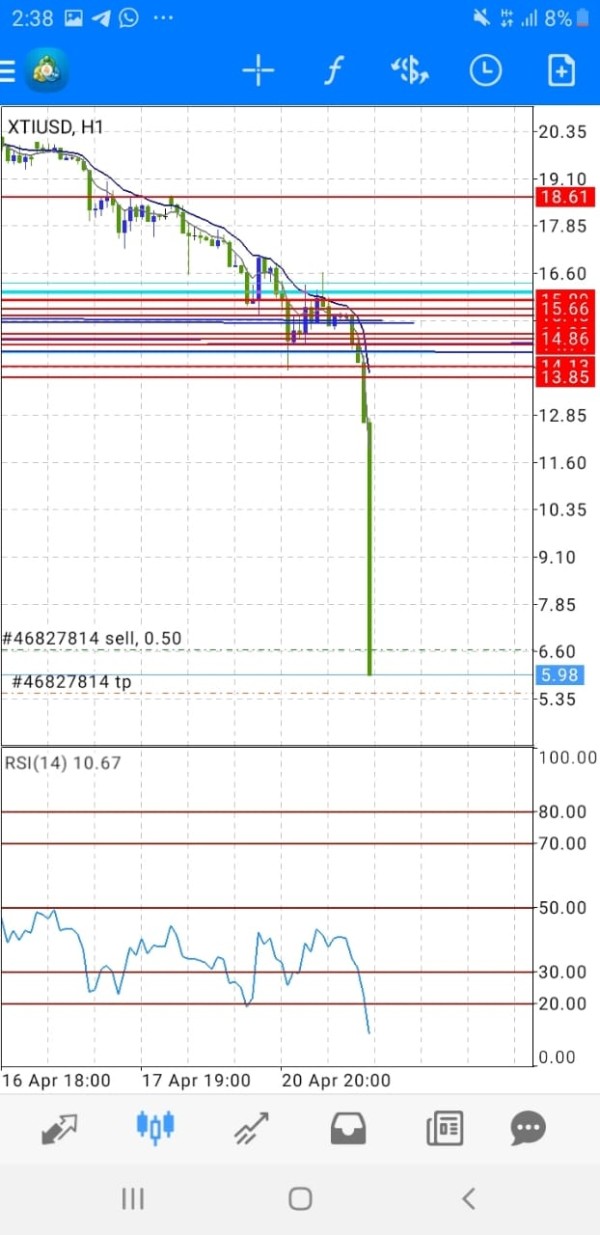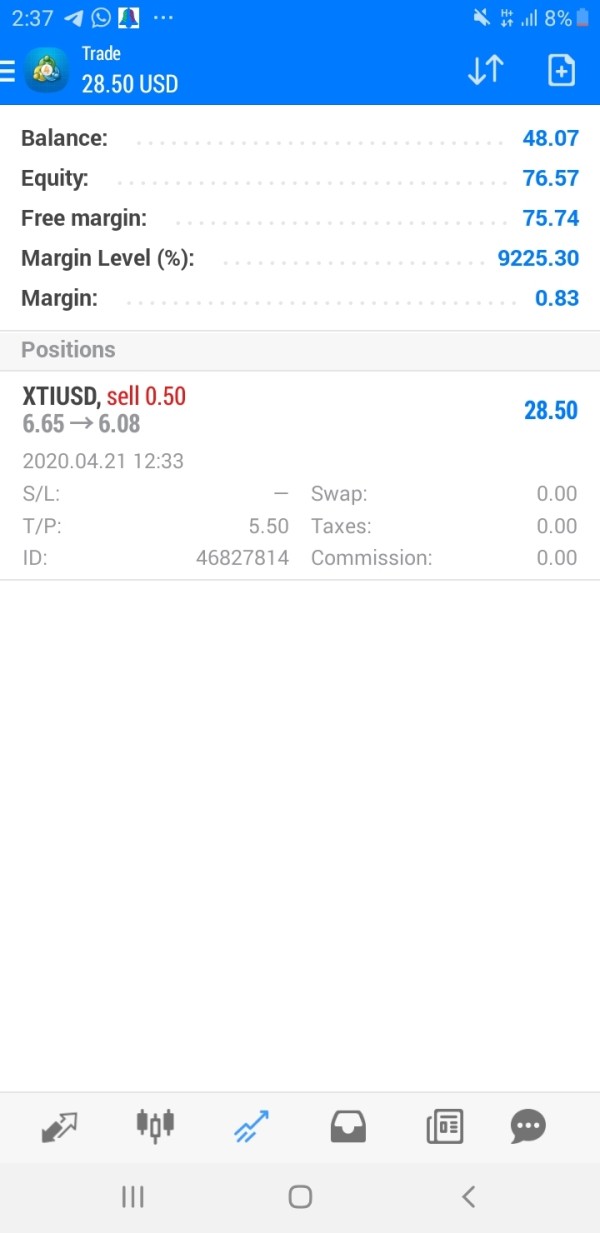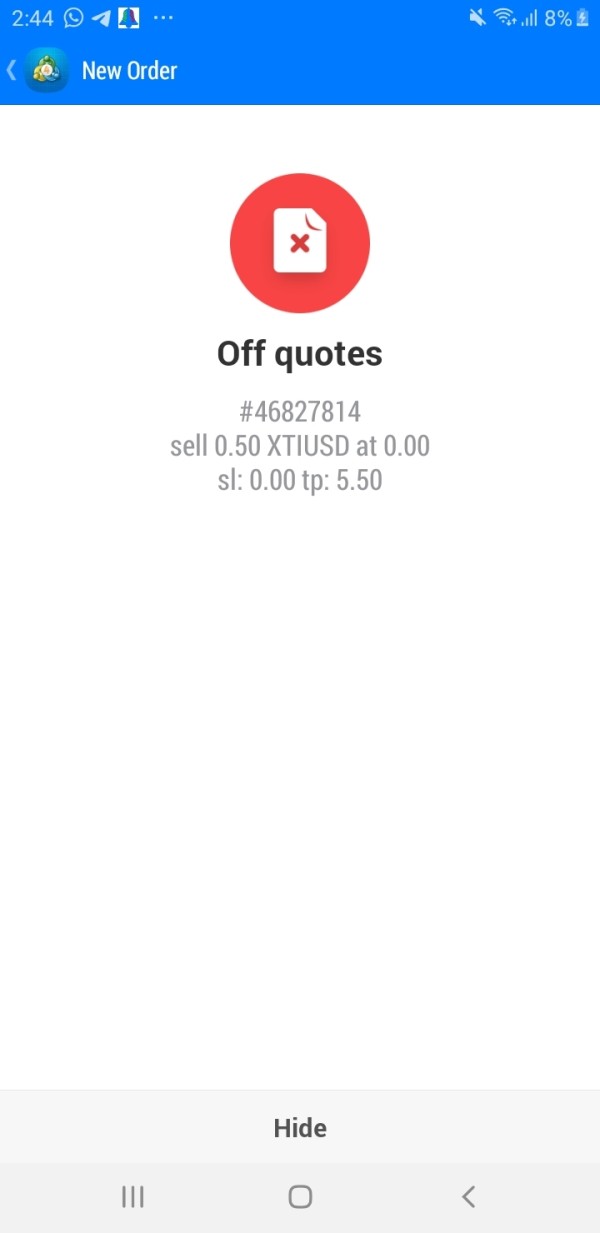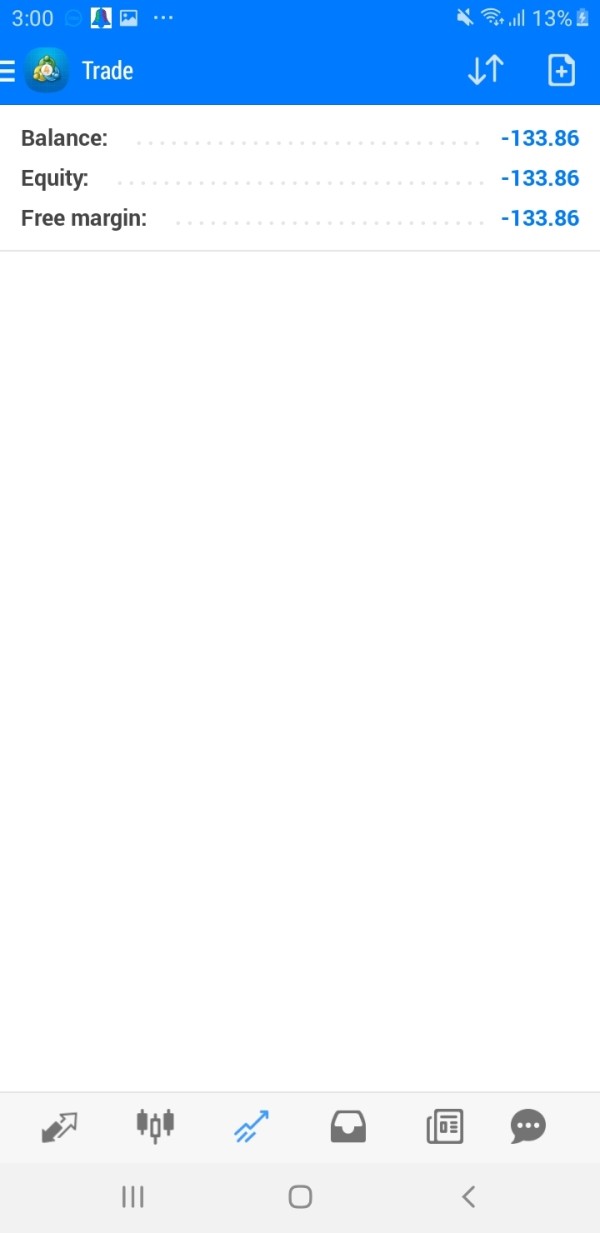Fake IC Markets 2025 Review: Everything You Need to Know
Executive Summary
This fake ic markets review looks at the serious problem of fake companies pretending to be the real IC Markets broker. The FCA has warned people about clone websites and fake operations that try to use IC Markets' good name. These fake companies usually advertise ECN trading with spreads starting from zero pips, and they target both regular and professional traders.
The real IC Markets started in 2007 and has its main office in Sydney, Australia. It offers real ECN trading solutions. But fake websites and unauthorized copies hurt the trust rating of any company claiming to be IC Markets. Traders must be very careful when they see any platform that claims to be connected with IC Markets, especially those that don't have proper regulatory oversight.
The fake operations often copy what the real broker offers, including good trading conditions and professional trading environments. This makes it hard for unsuspecting traders to spot the fakes. This review helps traders tell the difference between real and fake IC Markets operations and understand the risks of fake brokers.
Important Disclaimer
Traders must carefully tell the difference between fake IC Markets websites and the real IC Markets company, especially when it comes to regulatory information in different countries. The FCA has specifically identified and warned against clone operations in their regulatory news.
This review uses publicly available information and user feedback from various sources. Because fake operations change so much, we cannot verify all user experiences or claims made by unauthorized companies. Traders should always check regulatory status through official channels before working with any broker that claims to be IC Markets.
Rating Framework
Broker Overview
IC Markets started in 2007, and its main office is in Sydney, Australia. The real company built its reputation by providing trading solutions to both regular and professional clients through an ECN trading environment. The company's main goal has been to make trading more efficient and provide competitive market access.
But fake IC Markets operations have made things much more complicated. These fake companies often copy the real broker's business model and claim to offer ECN trading environments while lacking proper authorization. Regulatory warnings show that these fake operations target unsuspecting traders by copying the successful business model of the real IC Markets.
The real IC Markets offers various trading platforms and focuses on forex and CFD trading, though specific asset categories change depending on the regulatory area. The company has kept its position in the industry through consistent service delivery, but clone websites have created challenges for both the real company and potential clients who want authentic services.
This fake ic markets review shows how important it is to verify before working with any company claiming to be IC Markets. The regulatory landscape has become increasingly complex with unauthorized operations everywhere.
Regulatory Status: The FCA has issued specific warnings against fake IC Markets operations, showing how important it is to verify regulatory credentials. Real IC Markets companies operate under proper regulatory oversight, while fake operations typically lack such authorization.
Deposit and Withdrawal Methods: Information about specific deposit and withdrawal methods for fake operations stays unclear. These companies often fail to provide transparent financial processes.
Minimum Deposit Requirements: Fake operations rarely provide clear minimum deposit information. They often use this confusion to attract unsuspecting traders.
Bonus Promotions: No specific bonus or promotional information has been found for fake IC Markets operations. Some may use promotional offers as bait for unsuspecting traders.
Tradeable Assets: While fake operations claim to offer comprehensive financial instruments, specific tradeable asset categories remain unverified and potentially misleading.
Cost Structure: Advertised spreads starting from zero pips are common claims. But actual commission structures and additional costs remain unclear for fake operations.
Leverage Ratios: Specific leverage information for fake operations is typically not transparently disclosed.
Platform Options: Claims of providing ECN trading environments are common. But actual platform specifications remain unverified for fake operations.
Regional Restrictions: Information about geographical limitations for fake operations is typically not clearly disclosed.
Customer Support Languages: Language support information for fake operations remains unspecified and potentially unreliable.
This fake ic markets review section shows the general lack of transparency that characterizes fake operations compared to legitimate brokers.
Detailed Rating Analysis
Account Conditions Analysis (5/10)
The account conditions offered by fake IC Markets operations present big concerns for potential traders. Unlike legitimate brokers that provide clear account type specifications, fake operations often lack transparency about their account structures. The absence of detailed information about minimum deposit requirements creates uncertainty for traders trying to evaluate whether these operations are legitimate.
Fake operations typically fail to provide comprehensive information about their account opening processes. Legitimate brokers usually outline this clearly. The lack of specialized account features, such as Islamic accounts or professional trading accounts, further shows the superficial nature of these fake operations. Available information shows that these fake companies often present overly simplified account structures that lack the sophistication expected from established brokers.
The regulatory warnings issued by the FCA specifically highlight concerns about account safety and legitimacy. Traders considering any IC Markets-related operation should verify account protection measures and regulatory compliance before proceeding. The absence of clear account terms and conditions represents a significant red flag for potential clients.
This fake ic markets review emphasizes that legitimate account conditions require transparent disclosure of all terms, fees, and requirements. Fake operations consistently fail to provide this adequately.
Fake IC Markets operations often claim to provide comprehensive trading tools and resources, but the actual availability and quality of these offerings remain questionable. While legitimate brokers invest significantly in developing robust trading tools, fake operations typically provide minimal or non-functional resources that fail to meet professional trading standards.
The research and analysis resources claimed by fake operations often lack depth and reliability. Unlike established brokers that provide regular market analysis, economic calendars, and professional research reports, fake operations typically offer superficial or outdated information that provides little value to serious traders.
Educational resources represent another area where fake operations fall short of legitimate standards. Professional brokers typically invest in comprehensive educational programs, webinars, and training materials. Fake operations often provide minimal or plagiarized educational content that fails to support trader development effectively.
Automated trading support, including Expert Advisors and algorithmic trading capabilities, remains questionable for fake operations. The technical infrastructure required to support sophisticated automated trading typically exceeds the capabilities of fake operations. This leaves traders with limited or non-functional automated trading options.
Customer Service and Support Analysis (N/A)
Customer service evaluation for fake IC Markets operations proves challenging due to the inconsistent and often non-existent support infrastructure. Unlike legitimate brokers that maintain professional customer service departments, fake operations typically provide minimal or unreliable customer support channels.
Response times for fake operations, when support is available, often exceed professional standards. Legitimate brokers typically maintain response time commitments and service level agreements. Fake operations rarely provide consistent or timely support to client inquiries.
Service quality represents a significant concern for fake operations, as the lack of proper infrastructure and trained personnel results in inadequate problem resolution capabilities. Professional brokers invest in customer service training and maintain quality standards. Fake operations often lack the resources or commitment to provide adequate support.
Multilingual support, commonly offered by established international brokers, remains unreliable or non-existent for fake operations. The limited language capabilities further indicate the superficial nature of these fake companies compared to legitimate international brokers.
Trading Experience Analysis (7/10)
The trading experience offered by companies claiming to be IC Markets varies significantly between legitimate and fake operations. When legitimate, the ECN trading environment provides competitive conditions that many traders appreciate. However, fake operations often fail to deliver the promised trading conditions, despite advertising similar features.
Platform stability and execution speed represent critical factors in trading experience evaluation. Legitimate IC Markets operations typically maintain robust technical infrastructure. Fake operations often struggle with platform reliability and consistent order execution. The advertised ECN environment requires sophisticated technology that fake operations rarely possess.
Order execution quality becomes particularly important when evaluating trading experience. Professional ECN environments require direct market access and transparent order routing. These are capabilities that fake operations typically cannot provide effectively. The gap between advertised and actual execution quality often reveals the fake nature of these operations.
Mobile trading experience, increasingly important for modern traders, often remains underdeveloped or non-functional for fake operations. Legitimate brokers invest significantly in mobile platform development. Fake operations typically provide limited or unreliable mobile trading capabilities.
This fake ic markets review section emphasizes that while trading conditions may appear attractive on paper, the actual trading experience with fake operations often falls far short of professional standards and advertised capabilities.
Trust Factor Analysis (3/10)
The trust factor represents the most critical concern when evaluating fake IC Markets operations. The FCA warnings specifically addressing clone websites and fake operations significantly impact the overall trustworthiness of any company claiming to be IC Markets without proper verification.
Regulatory credentials form the foundation of broker trustworthiness, and fake operations consistently fail to provide legitimate regulatory authorization. The absence of proper licensing and regulatory oversight creates substantial risks for traders. This includes potential loss of funds and lack of legal recourse in case of disputes.
Fund safety measures, essential for any legitimate broker, remain questionable or non-existent for fake operations. Professional brokers typically maintain segregated client accounts and provide clear fund protection policies. Fake operations often lack transparent fund safety protocols.
Company transparency, including clear disclosure of ownership, management, and operational procedures, typically remains inadequate for fake operations. The lack of verifiable company information and transparent business practices further undermines trust and credibility.
Industry reputation suffers significantly due to the presence of fake operations. These fake companies damage the overall perception of the legitimate IC Markets brand and create confusion among potential clients seeking authentic services.
User Experience Analysis (6/10)
User experience evaluation for fake IC Markets operations reveals significant differences between claimed and actual service delivery. While Traders Union ratings show positive scores for legitimate operations, fake companies often fail to provide comparable user experiences despite similar marketing claims.
Interface design and usability often appear professional initially, as fake operations frequently copy legitimate broker interfaces. However, the underlying functionality typically fails to match the visual presentation. This results in frustrating user experiences and limited platform capabilities.
Registration and verification processes for fake operations often lack the security measures and compliance procedures required by legitimate brokers. The simplified or non-existent verification procedures, while appearing convenient, often indicate inadequate regulatory compliance and security measures.
Fund operation experiences represent a critical area where fake operations consistently fail to meet professional standards. Legitimate brokers provide transparent and efficient deposit and withdrawal processes. Fake operations often create obstacles or delays in fund operations, particularly withdrawals.
Common user complaints about fake operations typically focus on fund access issues, platform functionality problems, and inadequate customer support. These recurring issues highlight the fundamental differences between legitimate and fake operations claiming to be IC Markets.
Conclusion
This comprehensive fake ic markets review reveals significant concerns about fake operations impersonating the legitimate IC Markets broker. The overall evaluation indicates that traders must exercise extreme caution when encountering any company claiming to be IC Markets. This is particularly true for those lacking proper regulatory verification.
The analysis suggests that while legitimate IC Markets operations may provide competitive ECN trading environments suitable for professional traders, fake operations consistently fail to deliver promised services and pose substantial risks to trader funds and data security. The FCA warnings and regulatory concerns significantly impact the overall trust rating for any unverified IC Markets operation.
Traders seeking genuine ECN trading environments should prioritize regulatory verification and due diligence before engaging with any broker claiming IC Markets affiliation. The presence of fake operations in the market emphasizes the importance of thorough research and regulatory compliance verification in broker selection processes.











